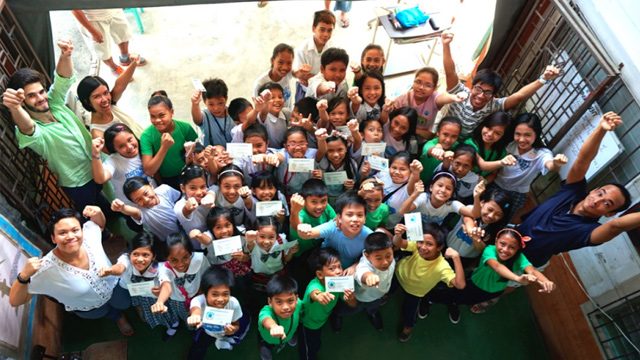SUMMARY
This is AI generated summarization, which may have errors. For context, always refer to the full article.

MANILA, Philippines – Character, attitude, skills, knowledge.
Schools are expected to help students succeed on all 4 areas, especially considering the increasingly competitive environment for graduates.
For teachers, students, and parents, this can mean intense pressure to succeed. One social enterprise hopes to develop the students on all 4 aspects all while making learning fun. (READ: The value of education: Australia vs. the Philippines)
The Ultimate Learning Accelerator (TULA) is an after-school learning center which uses a combination of games, technology, and other activities to help students absorb information while practicing curiosity, critical thinking, and social skills.
According to TULA, their activities range from playing “Math vs Zombies” on a tablet to analyzing Disney movies to understand conflict. Instead of teachers, TULA has “Learning Coaches” who “motivate, guide, and mentor the learners.”
The center operates on the idea of combining thinking skills – understanding problems and reaching creative solutions – social skills, and organizational skills.
One of their learners’ reflected on the experience, saying, “I had learned a lot – that asking questions is how you learn, that making mistakes was proof of learning, and that it was important to practice grit and never give up.”
Leap of faith
TULA began in April 2015. One of its founders, James Centenera, worked for McKinsey, a management consulting firm before starting TULA.
Centenera was born in South Australia and raised on a chicken farm by Filipino parents, neither of whom graduated university. Centenera studied Engineering before being recruited at McKinsey.
After a summer as a volunteer teacher in Nepal, Centenera saw how access to education, or the lack thereof, could eliminate or perpetuate inequality. (READ: 3 things the private sector can do for basic education)
Centenera then met Fenton Whelan, another McKinsey employee, who eventually became TULA’s co-founder.
In 2015, Centenera quit his job to start TULA in the hopes of reinventing education. While he understood the value of traditional education, he also wanted children to have the opportunity to develop outside of classrooms.
They have around 17 people, and have counted 270 students, or “learners,” in their program. The members of their team also came from corporate backgrounds, but decided to work towards TULA’s goals.
Pressure on kids
Children now face more pressure to succeed.
In the Philippines, part of the reasoning behind the K to 12 program was to give Filipinos a better fighting chance in the international playing field. Aside from adding Universal Kindergarten and Grades 11 and 12, adjustments to the curriculum hope to help graduates get jobs without a college degree. (READ: The K to 12 challenge)
However, learning the day’s lessons are no longer enough. Developing other competencies like critical thinking and social skills provide some students with a greater advantage. (READ: State of PH education hinders bid for inclusive growth)
TULA’s cheapest package is priced at around P300 ($6.29), but they have also begun training public school teachers to use their system. So far, they have trained 60 teachers.
The center has no intention of stopping anytime soon. According to them, they want to “transform the lives of thousands of kids across the Philippines and millions across the world one day.” – Bea Orante/Rappler.com
$1 = P47.69
Add a comment
How does this make you feel?
There are no comments yet. Add your comment to start the conversation.